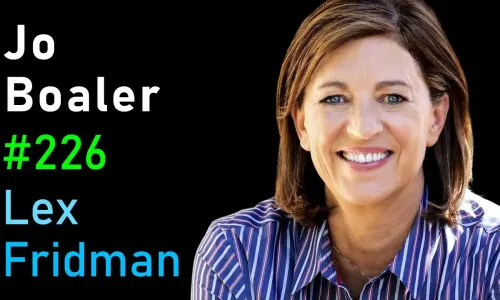See all Lex Fridman transcripts on Youtube

Jo Boaler: How to Learn Math | Lex Fridman Podcast #226
1 hours 30 minutes 40 seconds
🇬🇧 English

Omnivision Solutions Ltd
- Getting Started
- Create Transcript
- Pricing
- FAQs
- Recent Transcriptions
- Roadmap

1 hours 30 minutes 40 seconds
🇬🇧 English

Omnivision Solutions Ltd